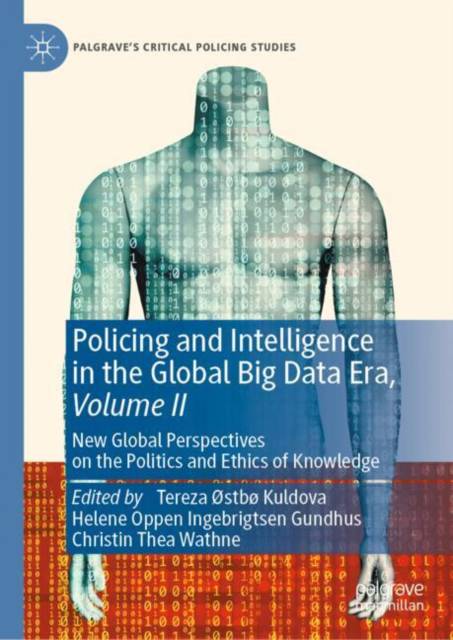
- Retrait gratuit dans votre magasin Club
- 7.000.000 titres dans notre catalogue
- Payer en toute sécurité
- Toujours un magasin près de chez vous
- Retrait gratuit dans votre magasin Club
- 7.000.0000 titres dans notre catalogue
- Payer en toute sécurité
- Toujours un magasin près de chez vous
Policing and Intelligence in the Global Big Data Era, Volume II
New Global Perspectives on the Politics and Ethics of Knowledge
Description
This volume, the second of a two volume set, offers a rich and unique collection of global perspectives on data-driven predictive technologies and the expansion and use of surveillance apparatuses in policing and intelligence, both public and private. Volume II delves into the epistemologies of data, into the imaginaries of accuracy, and fantasies of technosolutionism, utilizing empirical case studies to interrogate the use of data in policing, while raising questions pertaining to governance, ethics and knowledge construction. The chapters span from exploring the construction of clean and dirty data in private and public policing in South Africa, discussions about facial recognition and technopolitics in Brazil, the construction of intelligence and organizational learning in Norwegian police ethics and broader questions of transparency, data quality, and trust in data-driven policing, to the very topical issues of policing of generative AI and the ways in which both authoritarian and liberal democracies, such as China and India, use biopolitics to turn social welfare into surveillance. Academics and students of criminology, social anthropology, critical algorithm studies, critical sociology, and regional studies, will find this timely volume of interest.
Spécifications
Parties prenantes
- Editeur:
Contenu
- Nombre de pages :
- 324
- Langue:
- Anglais
- Collection :
Caractéristiques
- EAN:
- 9783031682971
- Date de parution :
- 01-10-24
- Format:
- Livre relié
- Format numérique:
- Genaaid
- Dimensions :
- 148 mm x 210 mm
- Poids :
- 557 g

Les avis
Nous publions uniquement les avis qui respectent les conditions requises. Consultez nos conditions pour les avis.





